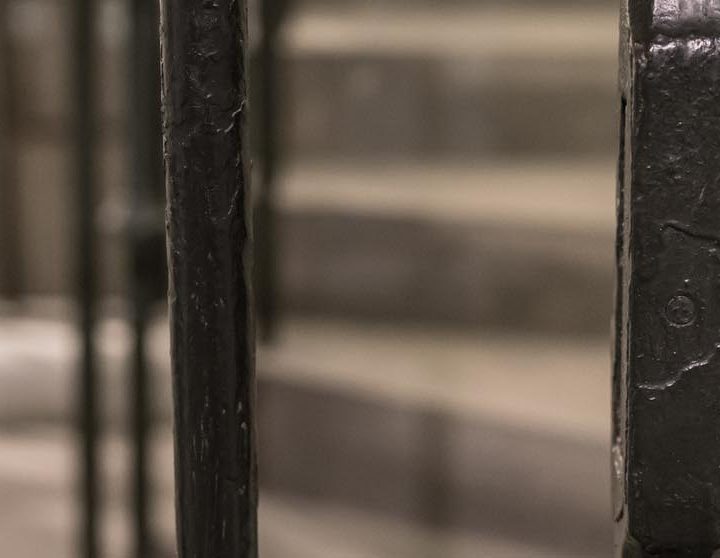Calls have increased to review prisoners on IPP sentences, with nearly 100 self-inflicted deaths of IPP prisoners and a risk of further deaths occurring.
Imprisonment for public protection (IPP) sentences were introduced in 2003. They were indeterminate sentences given to prisoners based on concerns about how they might behave in the future. Unlike a normal sentence for a specific amount of time, those given an IPP sentence would have to serve a minimum tariff in prison before being detained for an indefinite period, until they could prove to the Parole Board that they were no longer a risk. Many of those on IPPs were convicted for low-level crimes, such as theft.
These sentences are now widely acknowledged as both wrong in principle and unworkable in practice, with former supreme court justice Lord Brown describing them as “the greatest single stain on our criminal justice system”.
Self-inflicted deaths of IPP prisoners
Last year, the Prison and Probation Ombudsman reported that there had been 78 self-inflicted deaths of IPP prisoners in custody since 2005. The United Group for Reform of IPP puts the total at 90, with 2023 seeing the highest number of suicides in one year (9) since the sentences began.
The rate of self-harm among IPP prisoners is more than twice that of the general prison population.
Our inquest team at Farleys represented the family for the inquest into the death of Kelvin Speakman, who died in 2016. Kelvin had a troubled childhood and a long history of mental ill-health. In 2007, he was given an IPP sentence with a recommendation to serve a minimum of two years.
Like thousands of other prisoners, he was still in prison nine years on. Despite repeated episodes of self-harm and numerous suicide attempts, he was never transferred to a secure mental health unit and, in April 2016, he was found in his cell having hanged himself. The inquest found multiple failings in the ACCT process for prisoners at risk of self-harm or suicide, and the Senior Coroner for Worcestershire, Geraint Williams, issued a Prevention of Future Deaths Report to HM Prison Service and HMP Hewell.
More recently, the inquest into the death of Scott Rider concluded in March 2024, concluding Mr Rider died by suicide. The minimum tariff set for his sentence was 23 months, yet he had been in prison for 17.5 years at the time of his death in June 2022. Senior Coroner for Milton Keynes, Tom Osbourne, issued a Prevention of Future Deaths Report to the Minister of State for Prisoner, Parole and Probation, highlighting that Mr Rider was one of many IPP prisoners struggling to progress in his sentence and had limited hope for release.
The Senior Coroner wrote:
“On any consideration of the circumstances of Mr Rider’s death, one has to conclude that his treatment was inhumane and indefensible and that if action is not taken to review all prisoner’s sentences to IPP then there is a risk of further deaths occurring.”
Calls for reform for current IPP prisoners
IPP sentences were abolished in 2012. However, abolition was not applied retrospectively, meaning that there are still more than 2,800 IPP prisoners, 99% of whom have served their tariff, with over 700 having been detained for at least ten years over their tariff. The Justice Select Committee 2022 Report into IPP sentences found that many prisoners had little or no access to the rehabilitative courses they were required to complete before they could leave prison.
Lord Blunkett, who introduced the IPP sentence as Home Secretary, admitted: “I got it wrong”, and that the longer these prisoners are in custody, the more likely they are to find themselves unable to rehabilitate.
There have been proposed amendments to the Victims and Prisoners Bill, including a proposal to put into effect the primary recommendation of the 2022 report – which would be the government enabling a resentencing exercise for those still serving IPP sentences. However, such an exercise would be complex. There is a clear cross-party consensus that IPP sentences are unjust, but to date, there is a lack of action to address those still serving IPP sentences.
Here at Farleys, we have a wealth of experience in assisting families of those who have died in prison. Uncertainty around the circumstances of the death of a loved one and navigating the inquest process can be particularly distressing. Often, legal aid will be available for family members to be represented at an inquest when someone has died in prison.
If your loved one has passed away while in custody, our team will do all they can to offer you advice and support throughout the process. Call us on 0845 287 0939 or send your enquiry through our online form.





